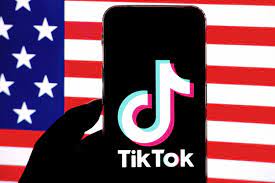TikTok is once again on the chopping block, with the House of Representatives signing a bill that could ban the app from the United States. The original effort culminated in a hearing where TikTok’s CEO, Shou Chew, defended the app to lawmakers last March. It became clear to the public that lawmakers didn’t understand social media and memes spread like wildfire. TikTok did not get banned and everyone assumed it was safe.
However, a renewed bipartisan interest got the bill through the House in record time. President Biden also indicated a willingness to sign the bill into law, making the possibility of a ban more feasible. If passed, the law would give TikTok’s parent company, ByteDance, six months to find a foreign buyer. If the company fails to sell TikTok in that time, the app will no longer be available on the app store. Current users will not have it removed from their phones, but they will not be able to update it. Eventually, this will render it unusable. Of course, there are workarounds like VPNs, but using TikTok in the US would become significantly more difficult. China does not seem inclined to allow its sale.
Critics of this measure are quick to point out that TikTok is not any more guilty of data theft than many American companies. Currently, there is no available proof that TikTok has been selling user data to the Chinese government or otherwise allowing China to access Americans’ information. Still, former employees used the app to monitor a few American users in 2022. While not quite collusion with the government of a foreign nation, it’s a reason for officials to be concerned about national security. Although critics have also stated the Chinese government could get the same information gathered on TikTok from the data brokers already collecting and selling this information in the United States.
Even those who view TikTok as a problem are wary of a possible ban. Some worry that a full ban could set a dangerous precedent and accidentally allow the government to limit access to information from other countries. Others view any kind of censorship as a violation of the First Amendment right of free speech. And even in the push against TikTok, American social media companies and data brokers who employ practices lawmakers are currently condemning face few legal repercussions.














